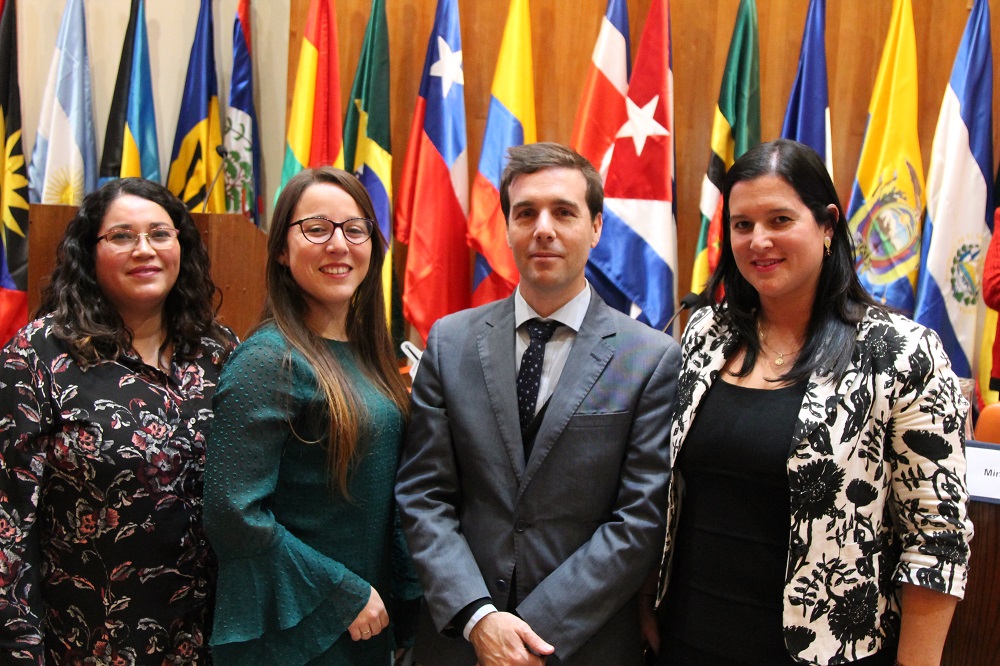The CCLAC Region - Regional Coordinator Ecuador
In 1976 a Coordinating Committee for Latin America, established by the 10th Codex Alimentarius Commission in 1974, held its first meeting in Rome with eight countries from the region in attendance. At its third session a proposal was made to change the name of the committee to its current form (Coordinating Committee for Latin America and the Caribbean) as this better reflected the membership of the region. In 1984 at its 31st session, the Executive Committee, acting on behalf of the Commission, agreed to this change.
The region of Latin America and the Caribbean is an important actor in the production and trade of food at a global level. The region produces enough food to supply itself and to export, with both water and land resources to produce even more.
The region has enormous natural wealth, a flourishing agricultural industry and a family farming sector that is essential for its population. The promotion and strengthening of food safety must be continued at the level of all regions to guarantee the health of consumers and fair and equitable trade.< /p>
The coordinator, Ecuador is based in AGROCALIDAD an agency attached to the Ministry of Agriculture and Livestock. They aim to create synergies between countries in the region, to provide mutual support in order to overcome regional problems and examine solutions to common challenges.
The coordinator further aims to strengthen collaboration among countries and strengthen the participation of developing countries in the Commission and its subsidiary bodies.
CCLAC Coordinator
All information on Codex is public and free.
For regional enquiries contact:
CCLAC Secretariat
Agencia de Regulación y Control Fito y
Zoosanitaria AGROCALIDAD
Avenida
Eloy Alfaro y Amazonas
Quito
Email: [email protected]
Chile: the importance of Codex Alimentarius in food production and trade.
The Chilean Codex Alimentarius Secretariat, ACHIPIA, organized a seminar on 5 June 2019 entitled “Codex Alimentarius: Strengthening food safety in trade”. The aim was to attract and increase the participation of different sectors of the food industry in the national sub-committees. Speakers from the food industry association explained to participants how Codex standards and their application in production processes, help them in complying with national and international regulations on food safety and facilitating food trade, using concrete examples in which actions were directly related to Codex standards.
Cassandra Pacheco, National Codex Contact Point said, “In Chile we have a national structure for the analysis of standards that is open, inclusive and dynamic, and we all benefit when everybody is an active part of the preparation of national positions”.

Karla Carmona, Cassandra Pacheco, Diego Varela, Constanza Vergara
Diego Varela, Chair of the Regional Coordinating Committee explained to participants that the relationship between food safety and international food trade has been recognized by the World Trade Organization as a key area that requires, more than ever, joint efforts “to ensure that global agri-food chains are capable of supplying the population with safe food”.
Marisol Figueroa, representing the food industry reminded participants that Codex is at the service of consumers, and that Codex standards provide benefit when they are elaborated in a participatory manner by all actors in the food chain. Luisa Kipreos from the nutrition and food department in the Ministry of Health and Agriculture and Livestock Service reiterated their belief that industry and government share the same goal, that is, to ensure that the population has stable availability of safe food in Chile and in the countries to which they export.
“National processes of participation in Codex are inclusive”, said Constanza Vergara, coordinator of the national subcommittee of the Codex food hygiene committee, “especially industry, since they are the ones that are ultimately responsible for producing food and applying these standards”, she said.
Read more
Codex regional web pages for Latin America and the Caribbean







Leave a comment